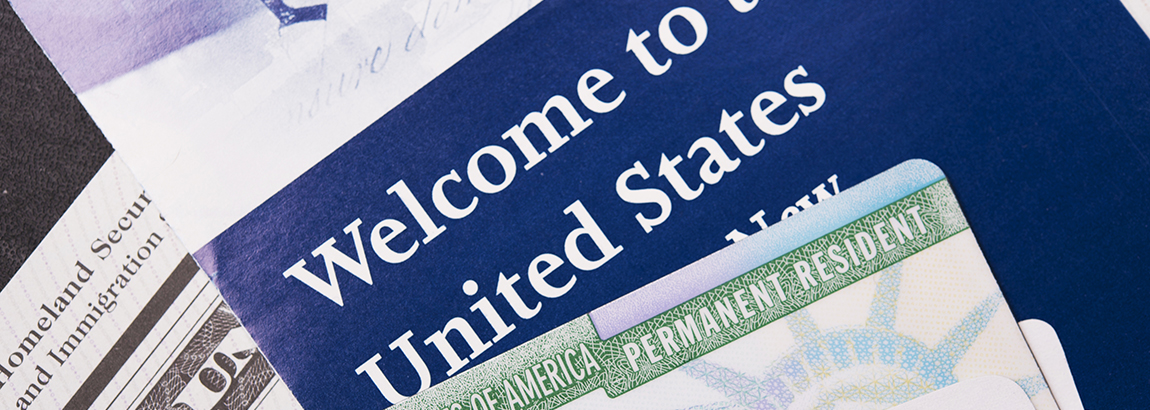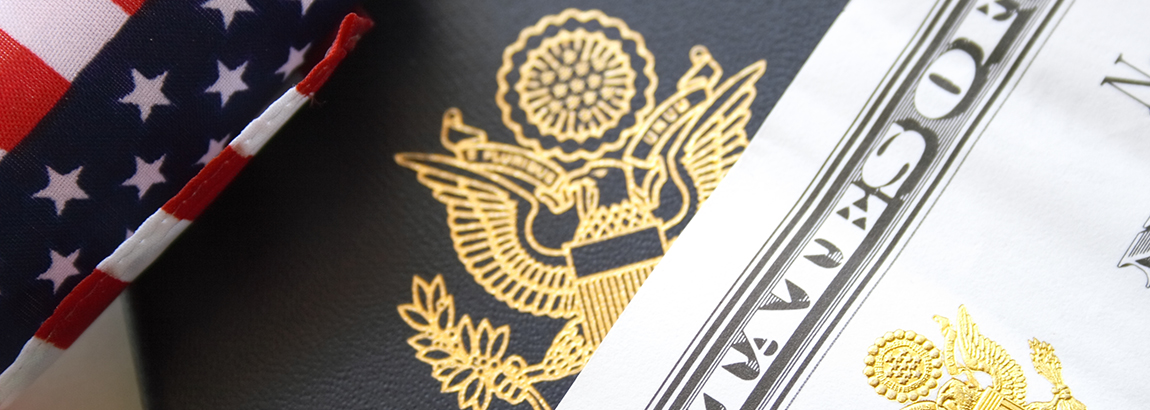Kolko & Casey, P.C. is a full service immigration and naturalization law firm providing professional legal services to individuals and businesses throughout Colorado, the Rocky Mountain West, the United States, and the World. Our professional staff speaks English, Spanish, Korean, and Portuguese and we can arrange for translators in any other language.
Parole in Place
Deferred Action for Childhood Arrivals (DACA)
On September 5, 2017, the Trump Administration announced the rescission of the Deferred Action for Childhood Arrivals (DACA) program.
However, on June 18, 2020, the U.S. Supreme Court held that the administration's rescission of DACA was unlawful. The decision from the Supreme Court means that individuals with DACA may continue to renew their DACA protection. Individuals who are otherwise eligible for DACA (but do not currently have DACA protection) should also be able to apply for DACA with the Department of Homeland Security (DHS).
On June 15, 2012, President Obama announced the Deferred Action for Childhood Arrivals (DACA) program. Under this program, certain young people in the United States without lawful immigration status may be able to apply for DACA in order to have their removal from the United States “deferred.” An approval of DACA is valid for a period of two years and also provides Employment Authorization during the DACA period.
Importantly, DACA is not a legal “status” in the United States. It is essentially an agreement between the DACA applicant and the U.S. Department of Homeland Security (DHS). The DACA applicant agrees to submit their application for DACA and the DHS agrees not to take any action against that individual for removal (deportation) for a period of at least two (2) years.
In order to qualify for DACA, an individual must establish that he or she:
- Is currently at least 15 years old;
- Entered the United States when under the age of 16;
- Has continuously resided in the United States since June 15, 2007 through the present time;
- Was physically present in the United States on June 15, 2012;
- Did not have any lawful immigration status on June 15, 2012;
- Was born on or after June 16, 1981;
- Is currently enrolled in a U.S. educational institution, has graduated from a U.S. High School, University, has obtained a General Equivalency Degree (GED) or has been honorably discharged from the U.S. Armed Forces or Coast Guard;
- Has not been convicted of a felony, serious misdemeanor or 3 or more other misdemeanors.
An application for DACA and Employment Authorization is submitted to the U.S. Citizenship and Immigration Service (USCIS). USCIS will then schedule the individual for a “Biometrics Appointment” in order to complete the requisite background check. If an individual meets the criteria listed above, her or she will receive a DACA approval and Employment Authorization Document (EAD) that is valid for two (2) years.
At the conclusion of the DACA period, an individual can apply to renew DACA with the USCIS. An application for DACA renewal should be submitted to USCIS between 150 and 120 days before their current DACA and EAD expire.
For more information on DACA, please contact Kolko & Casey, P.C. to schedule a consultation.
Temporary Visitor Visas for Business/Tourism
Many foreign nationals seek to enter the United States for a temporary period for tourism or business reasons. Depending on their country of nationality, a foreign national may be able to enter the United States under the Visa Waiver Program. Other foreign nationals must apply for and receive a B1/B2 Visa in order to travel to the United States for a temporary period of time.
Foreign nationals seeking to be admitted under the Visa Waiver Program or as a B1/B2 Visitor are not permitted to engage in the following:
- Study for credit
- Employment
- Work as foreign press, radio, film journalists or other information media, or
- Reside in the United States
Visa Waiver Program
Under the Visa Waiver Program, citizens of participating countries may travel to the United States without a visa for up to 90 days for a temporary visit. In order to travel to the United States on the Visa Waiver Program, a foreign national must first register and obtain a valid Electronic System for Travel Authorization (ESTA) approval.
There are currently 38 participating countries in the Visa Waiver Program. The U.S. Department of State website maintains a current list of all participating countries.
B-1 Visitor for Business
The B-1 visa is for individuals who wish to visit the United States temporarily for business purposes. Although the B-1 visa is available to business visitors, it is important to note that this visa does not allow employment in the U.S. However, business visitors may do the following:
- attend meetings,
- consult with business associates,
- attend scientific, professional, educational or business conventions and conferences,
- attend short-term trainings, and/or
- engage in negotiations on behalf of a foreign employer.
B-2 Visitor for Tourism
The B-2 visa is for individuals who wish to visit the United States temporarily for tourism purposes.
The B-2 visa is appropriate for individuals seeking to enter the United States temporarily for the following purposes:
- vacation,
- visit family or friends,
- receive medical treatment,
- participate in organized social events hosted by fraternal, social or service organizations, and/or
- participate in amateur musical, sports or similar events/contests (as long as not being paid for participation).
In order to obtain a B1 or B2 Visa, a foreign national must complete and file a Non-Immigrant Visa Application (Form DS-160) and attend an interview at a U.S. Embassy or Consulate abroad. The Foreign National must provide evidence of his or her ties to their home country and establish that he or she is “admissible” to the United States.
For more information about temporary travel to the United States on the Visa Waiver Program or as a B1/B2 Visitor, please contact Kolko & Casey, P.C. for a consultation.
Provisional Waivers of Inadmissibility
Cultural Exchange Visas
There are two types of Cultural Exchange Visitors. The J-1 Cultural Exchange Visa Program is administered by the U.S. State Department. The Q-1 Cultural Exchange Program is administered by the U.S. Department of Homeland Security’s Citizenship and Immigration Service. Each program has distinct requirements and duration.
J-1 Cultural Exchange Visitors
The J-1 visa is designed to provide educational and cultural exchange and to promote the cross-cultural sharing of knowledge and skills in education, arts and sciences.
J-1 Cultural Exchange Visitor is someone intends to participate in a U.S. Department of State approved cultural exchange program for the purpose of teaching, instruction or lecture, study, observation, research, consulting, or to receive graduate medical education or training.
In order to qualify for a J-1 visa, a foreign national exchange visitor must first be sponsored by an Exchange Visitor Program Sponsor that has been approved by the U.S. State Department. The length of time an individual can be in the United States on J-1 status varies according to the specific J-1 category.
Many J-1 visas carry a strict requirement that the J-1 Visitor return to their home country for a period of 2 years at the conclusion of the J-1 program and prior to their return to the United States in any other immigrant or non-immigrant status.
Spouses and children of J-1 Cultural Exchange Visitors may be eligible to reside in the United States in J-2 status. Spouses in J-2 status are eligible to apply for an employment authorization document (EAD) in order to work in the United States. Children on J-2 status are eligible to attend school in the United States.
Q-1 Cultural Exchange Visitors
The Q-1 nonimmigrant classification is designed for U.S. businesses, schools and other organizations to bring citizens and nationals of foreign countries to the United States for a temporary period of time specifically for the purpose of foreign exchange and in order to transmit the foreign national’s culture to the American public through the performance of his or her job duties.
An individual may be in the United States in Q-1 status for a maximum period of 15 months.
The Q-1 visa and status does not carry any benefits for dependent spouses or children. Therefore, any spouse or child of an individual on Q-1 must apply for their own visa or status separate from their Q-1 relative.
For more information on cultural exchange visitor visas and status, please contact Kolko & Casey, P.C. for a consultation.

 Call us today:
Call us today: 





